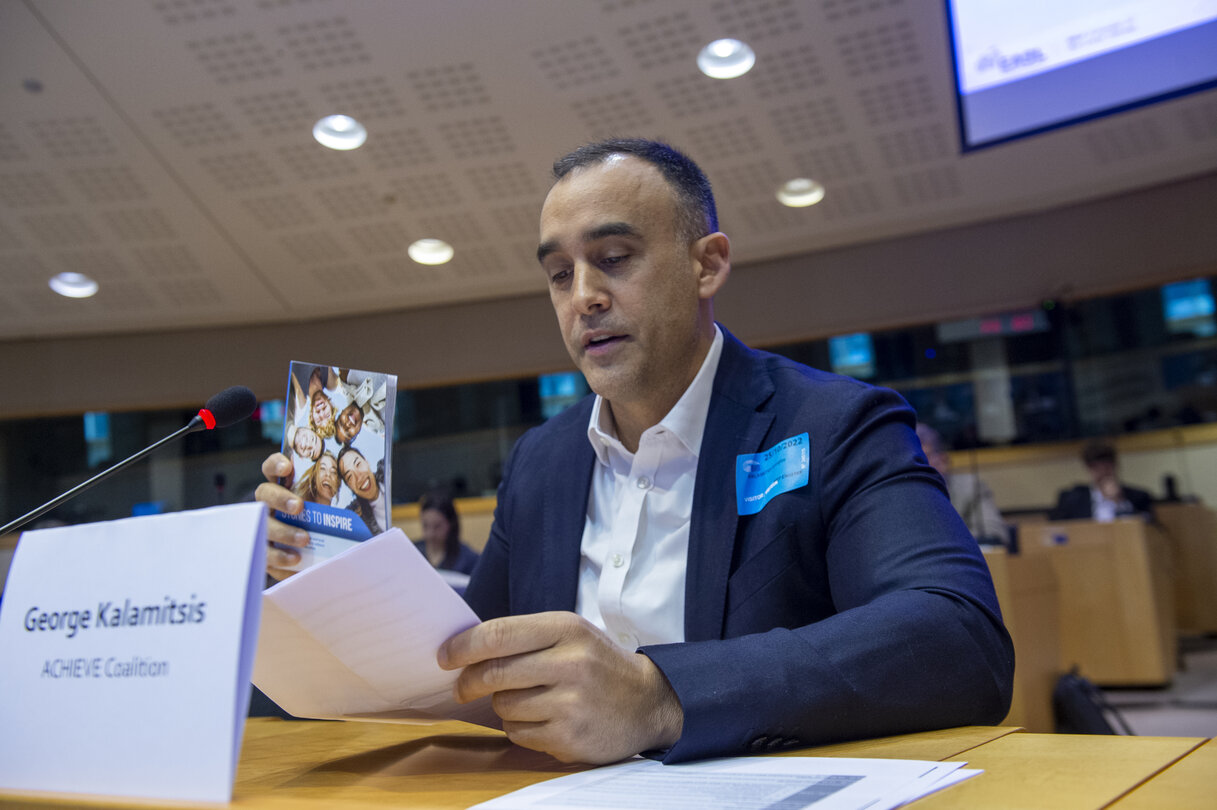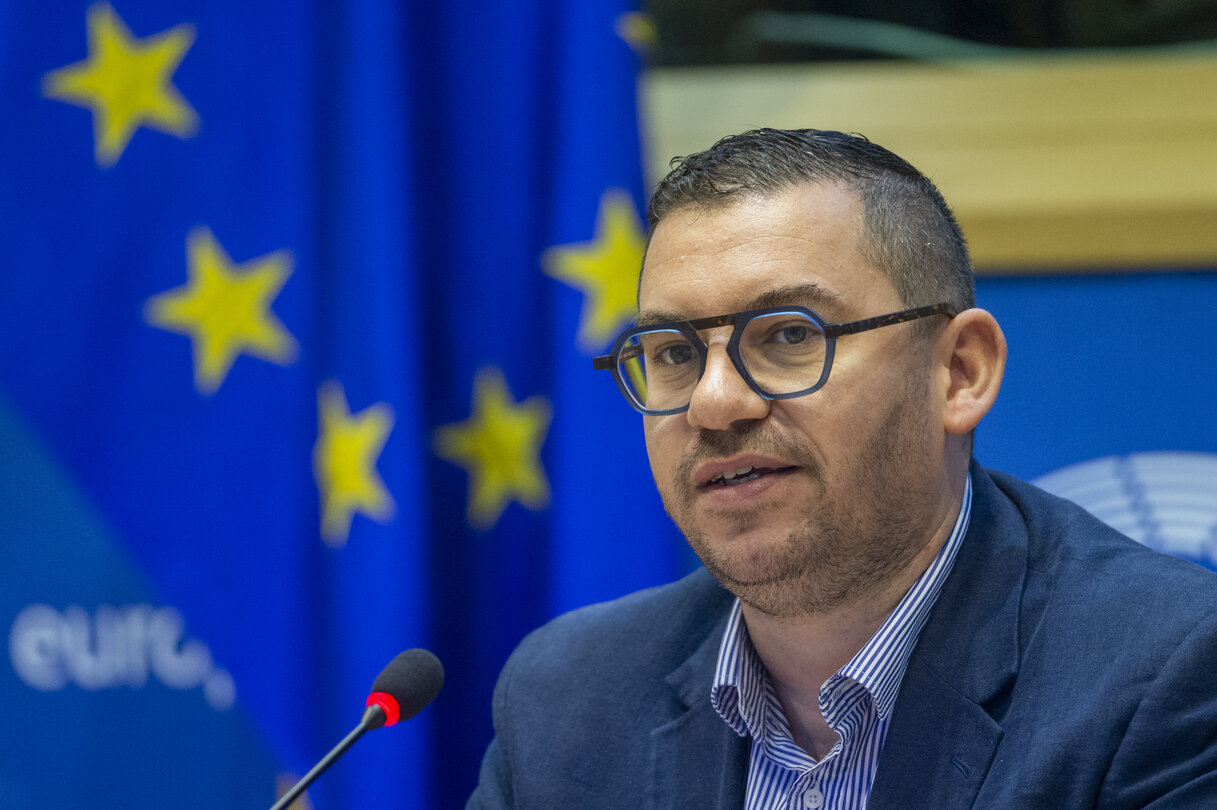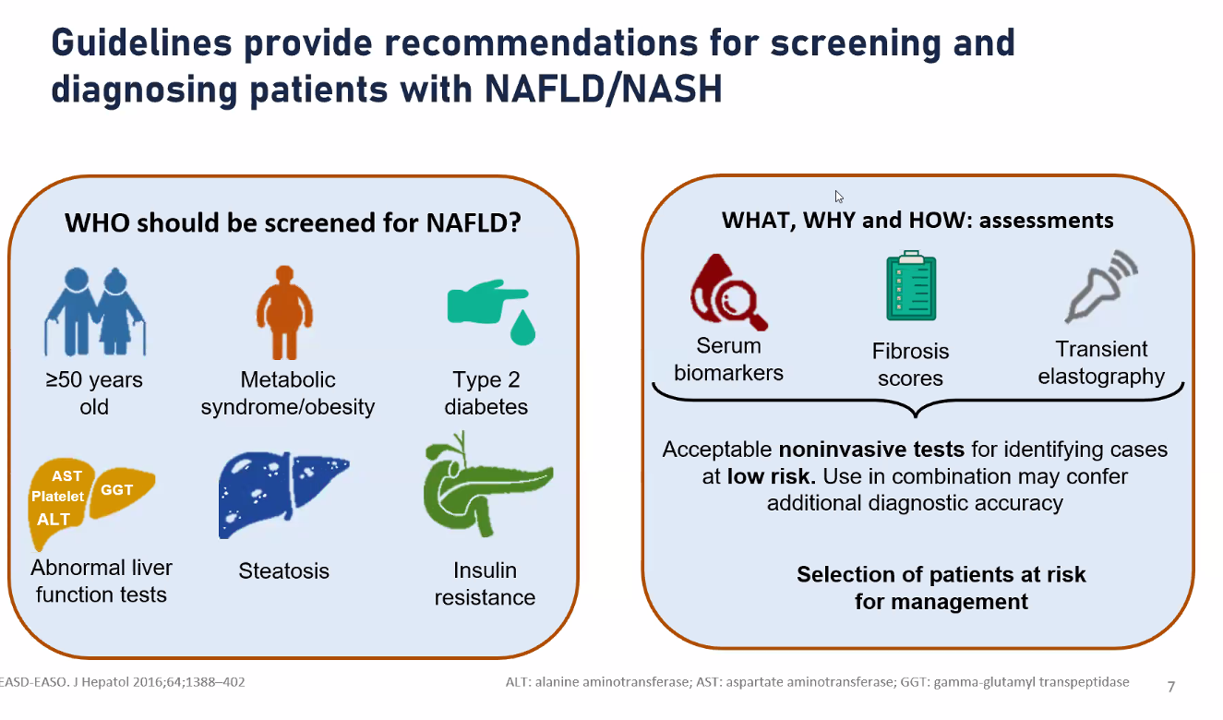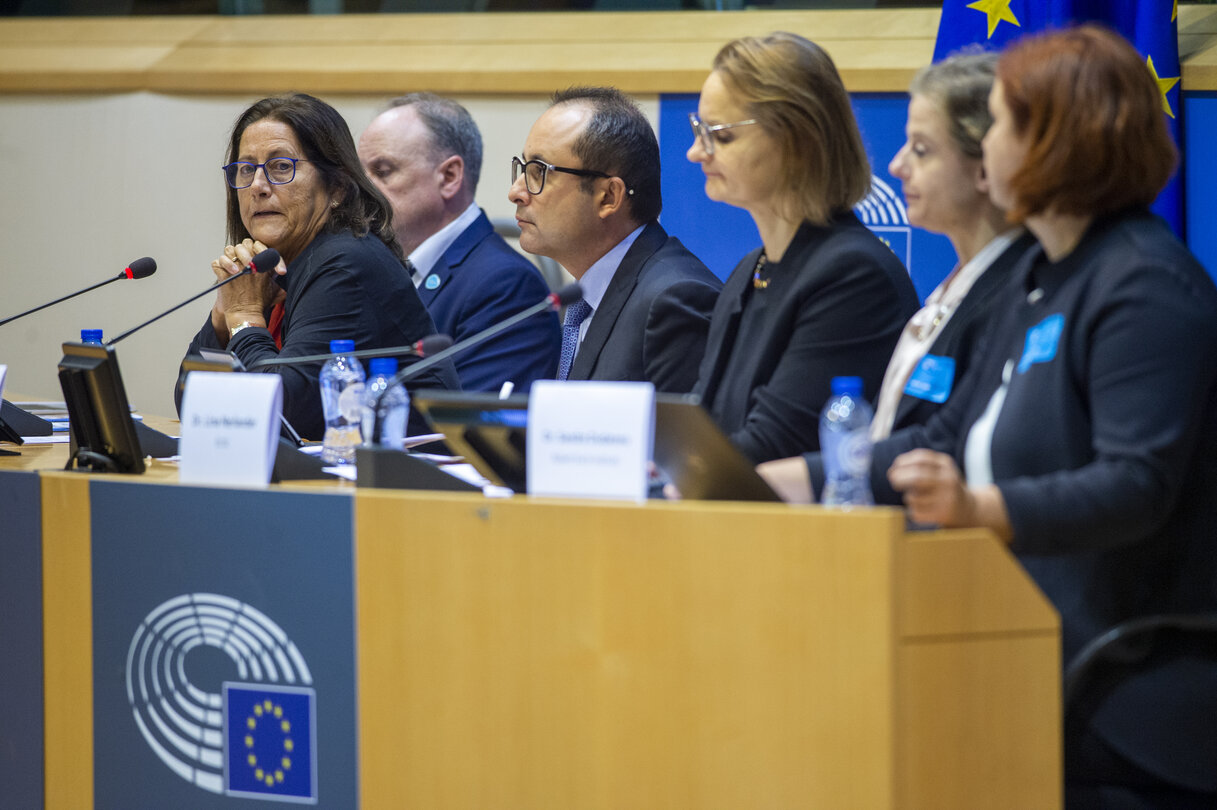Bringing Care to All European Patients: EASL Advocacy Events for Liver Cancer Awareness Month
This October 2022, in honour of Liver Cancer Awareness Month, EASL participated in organising two important advocacy events aimed at identifying and implementing strategies to enhance awareness of liver cancer and engage key policymakers at the EU level.
The Final Push to Eliminate Viral Hepatitis – How Can the EU Lead the Successful Achievement of this Global Public Health Priority
EASL jointly organised an event on 25 October 2022 at the European Parliament, hosted by the co-chair of the EASL Friends of the Liver Group, MEP Engerer. Working with the ACHIEVE Coalition, EASL invited representatives from key organisations such as World Hepatitis Alliance, Correlation Network, Liver Patients International, and many others to come together and speak directly to members of the European Parliament.
On the panel, EASL was represented by Prof. Maria Buti, EASL Policy and Public Health Councilor, 3 MEPs, members of the EASL Friends of the Liver interest group, some representatives of the European Commission, the European Centre for Disease Control (ECDC), the European Cancer Organisation and the Robert Koch Institute.
This event saw hepatology and policy experts reinforce the message that viral hepatitis is a preventable disease that benefits greatly from early detection and screening. Several panellists discussed the need for improved access to pan-European health data in order for countries to learn from one another and better respond to this public health threat at the policy level.
The key takeaway from this panel discussion was the importance of different stakeholders speaking with one voice while working towards elimination. In keeping with the WHO 2030 Goal of Viral Hepatitis Elimination, panellists and audience members alike called for the explicit inclusion of this goal in the New EU Global Health Strategy. Furthermore, several key targets were established:
- Closing the gaps in child vaccinations of Hepatitis B
- Raising public awareness of viral hepatitis and its treatments/cures
- Targeting key at-risk groups for awareness campaigns
- Ensuring political commitment to elimination efforts
The session was attended by dozens of experts and three members of European Parliament. The discussion took its close when MEP Andrey Kovatchev assured the room that the European Parliament was now aware of this public health threat and their recognition that working together is essential for elimination.
“Liver Cancer: No Patient Left Behind, Optimising the European Response”


On 12 October 2022, EASL joined representatives from Digestive Cancers Europe, the European Liver Patients Association, the International Liver Cancer Association, and others in discussing the main challenges facing Europeans today regarding liver cancer and what needs to be achieved in the coming years to ensure better quality of care for all.
Distinguished speakers from the field of hepatology, the European parliament, patient organisations, and patients themselves came together in this webinar to combat the neglect faced by those impacted by liver cancer. EASL was represented by two members of the EASL Policy and Public Health Committee, Prof. Peter Jepson and Prof. Jörn Schattenberg and a Member of EASL Governing Board, Prof Sven Francque.
The panel began with a discussion about the magnitude of the problem.
- Almost 1 million people were diagnosed with liver cancer in 2020
- Liver cancer has the second lowest 5-year survival rate of cancers in Europe
- Liver disease is rarely hereditary and is mainly due to environmental factors
- This results in the disease being highly stigmatized
The liver is a single organ that is essential for life which makes caring for liver cancer patients especially challenging. The disease is a silent one as symptoms are largely invisible until the disease reaches a stage where it becomes too late to cure. However, the liver is a remarkable organ with impressive regenerative abilities. This means that although the situation may be bleak right now, there is ample opportunity to ramp up research, screening, and preventative strategies to improve early detection and quality of care for all patients.


We have to expand the knowledge on liver disease beyond the boundaries of the liver field
– Joern Schattenberg, MD
Patient advocate, Zorana Maravic, along with the many hepatologists that participated called for increased research to be done in the areas of defining patient needs, cost-effectiveness of prevention initiatives, best practices for treatments strategies and sequencing, and the most discussed of all, increasing the screening window.

Health literacy is a critical empowerment strategy
– Julio Burgman, President of ELPA
The Liver Cancer webinar brought together stakeholders from all corners of the liver health community who openly talked about the greatest barriers to care today, the paths for improved care pathways, and necessary public health policies to create a healthier Europe. The session closed with a special guest, Member of European Parliament Tomislav Sokol who notably said, “we are at a crossroads in Europe” and now is a time for the EU to support nations through financial tools such as the EU4HEALTH and the Cohesion Policy aimed at reducing inequalities.
- Click here to see EU4HEALTH: https://health.ec.europa.eu/funding/eu4health-programme-2021-2027-vision-healthier-european-union_en
- Click here to see Cohesion Policy: https://ec.europa.eu/regional_policy/en/2021_2027/
- Click here to see the EASL Policy statement on drug use and the global hepatitis C elimination goal
- Click here to see EASL Eliminating Hepatitis C – an Action Plan
- Click here to see EASL Policy Statement on Liver Cancer Screening


